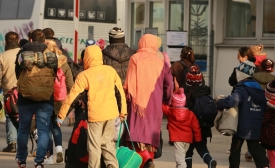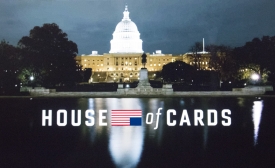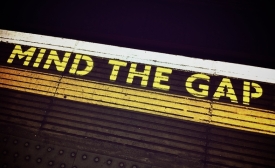social media

Laurence Desroches discusses a new digital storytelling campaign designed to bring attention to Syrian refugees.
Does life imitate art, or does it just seem that the longer the Trump adventure proceeds the more it resembles “House of Cards?” I’m not suggesting that our real-life drama borrows from the Netflix series, now seen round the world, but there is a sense in which the real and make-believe of American politics are converging as never before. Consider the debate over “real” news versus “fake news.” Consider that fact and non-reality are intertwined as never before in social media, IT games, and movies.

Mark Dillen explores the similarities between the Netflix hit "House of Cards" and the Trump presidency.
Agenda and MHP Communications has launched #WeAreNato, the organization's first major communications campaign in nearly a decade.[...] "Helping NATO reach audiences in more than 28 member countries and to explain its mission of guaranteeing peace and security for its citizens in the kind of work we love to do." [...] According to Agenda, the framework contract encompasses a wide variety of communications, public affairs and creative media relations.
In 2016-17, South Korea accepted around 40 cadets into the KNDA. [...] They undergo a rigorous training program, which includes public administration, languages, international law, regional and international affairs. Adding an additional well-structured and interactive applied course on digital diplomacy as a component of communication or public diplomacy is essential. Cadets would learn topics from account establishment to team coordination across multiple platforms, and be ready as a cadre of interactive, dedicated voices of South Korea within one semester.
Technology allows governments and citizens to communicate faster and more effectively. In the age of “digital diplomacy”, the ability to harness digital platforms effectively to engage people, exchange ideas and deliver key messages is more important than ever. Prime Minister Narendra Modi provides a great example of digital diplomacy done well by a head of a state. His use of digital tools has been central to his success both as a politician and India’s global advocate-in-chief.

Jeffrey Robertson outlines the benefits of introducing digital media education to the Korea National Diplomatic Academy.
Positioned in the top ranks of connectivity, internet speed, smartphone ownership, and social media usage, South Korea should be a leader in the use of digital technologies in public diplomacy. It should be an avid adapter – ready to build upon its strengths to upgrade and improve its public diplomacy for a new technological era. But it’s not. It faces distinct political, cultural, and technological challenges to reach its full potential.







